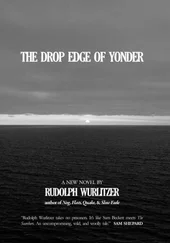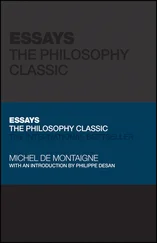Siri Hustvedt
Yonder: Essays
For Ester Vegan Hustvedt and Lloyd Hustvedt
1
My father once asked me if I knew where yonder was. I said I thought yonder was another word for there. He smiled and said, “No, yonder is between here and there.” This little story has stayed with me for years as an example of linguistic magic: it identified a new space — a middle region that was neither here nor there — a place that simply didn’t exist for me until it was given a name. During my father’s brief explanation of the meaning of yonder, and every time I’ve thought of it since, a landscape appears in my mind: I am standing at the crest of a small hill looking down into an open valley where there is a single tree, and beyond it lies the horizon defined by a series of low mountains or hills. This dull but serviceable image returns every time I think of yonder, one of those wonderful words I later discovered linguists call “shifters”—words distinct from others because they are animated by the speaker and move accordingly. In linguistic terms this means that you can never really find yourself yonder. Once you arrive at yonder tree, it becomes here and recedes forever into that imaginary horizon. Words that wobble attract me. The fact that here and there slide and slip depending on where I am is somehow poignant to me, revealing both the tenuous relation between words and things and the miraculous flexibility of language.
The truth is that what fascinates me is not so much being in a place as not being there: how places live in the mind once you have left them, how they are imagined before you arrive, or how they are seemingly called out of nothing to illustrate a thought or story like my tree down yonder. These mental spaces map our inner lives more fully than any “real” map, delineating the borders of here and there that also shape what we see in the present. My private geography, like most peoples’, excludes huge portions of the world. I have my own version of the famous Saul Steinberg map of the United States that shows a towering Manhattan; a shrunken, nearly invisible Midwest, South, and West; and ends in a more prominent California featuring Los Angeles. There have been only three important places in my life: Northfield, Minnesota, where I was born and grew up with my parents and three younger sisters; Norway, birthplace of my mother and my father’s grandparents; and New York City, where I have now lived for the past seventeen years.
When I was a child, the map consisted of two regions only: Minnesota and Norway, my here and my there. And although each remained distinct from the other — Norway was far away across the ocean and Minnesota was immediate, visible, and articulated into the thousands of subdivisions that make up everyday geography — the two places intermingled in language. I spoke Norwegian before I spoke English. Literally my mother’s tongue, Norwegian remains for me a language of childhood, of affection, of food, and of songs. I often feel its rhythms beneath my English thoughts and prose, and sometimes its vocabulary invades both. I spoke Norwegian first, because my maternal grandmother came to stay in Northfield before I had my first birthday and lived with us for nine months; but after she returned home, I began learning English and forgot Norwegian. It came back to me when I traveled with my mother and sister to Norway in 1959. During those months in Norway, when I was four years old and my sister Liv was only two and a half, we forgot English. When we found ourselves back in Minnesota, we remembered English and promptly forgot Norwegian again. Although the language went dormant for us, it lived on in our house. My parents often spoke Norwegian to each other, and there were words Liv and I and Astrid and Ingrid used habitually and supposed were English words but were not. For example, the Norwegian words for bib, sausage, peeing, and butt all submerged their English equivalents. Liv and I remember using these words with friends and how surprised we were to see their befuddled faces. The paraphernalia of infancy, of food, and inevitably the language of the toilet were so connected to our mother that they existed only in Norwegian. When I was twelve, my father, a professor of Norwegian language and literature, took a sabbatical year in Bergen, and Norwegian came back to me in a kind of flash. After that, it stuck. The speed with which we four sisters transferred our lives into Norwegian is nothing short of remarkable. During that year we played, thought, and dreamed in Norwegian.
I returned to Norway in 1972 and attended gymnasium in Bergen for a year. That time my family was not with me. I lived with my aunt and uncle outside the city and took the bus to school. Sometime during the initial weeks of my stay, I had a dream. I cannot remember its content, but the dream took place in Norwegian with English subtitles. I will always think of that dream as limbo. Its cinematic code expressed precisely my place between two cultures and two languages. But soon the metaphorical subtitles of my life disappeared, and I immersed myself in the dream’s “original” language. It has now been twenty-three years since I really lived in Norwegian. It surprises even me that less than three of my forty years were actually spent in Norway and that nearly every minute of that time was lived in Bergen. I speak Norwegian with such a broad Bergen dialect that my parents find it comical. That dialect is the real legacy of my years in Bergen, the imprint of an experience that will not leave me. Chances are even senility won’t rob me of it, since the old and feebleminded often return to the language of early childhood. And yet Norwegian survives in me not only as a sign of Bergen but as a sign of my parents’ house in Minnesota. It is not for nothing, after all, that when my stepson, Daniel, was a very little boy and he looked forward to going home to Minnesota with me and his father for Christmas, he would ask, “When are we going to Norway?”
If language is the most profound feature of any place, and I think it is, then perhaps my childhood history of forgetting and remembering enacts in miniature the dialectic of all immigrant experience: here and there are in a relation of constant strain that is chiefly determined by memory. My father, who is a third-generation Norwegian, speaks English with a Norwegian accent, testament to an American childhood that was lived largely in Norwegian. Although separated by an ocean, my mother and father grew up speaking the same language.
My mother was thirty years old when she came to the United States to live for good. She is now an American citizen and claims she is glad of this every time she votes. My mother’s threat to take the first plane back to Norway if Goldwater was elected remains strong in my memory, however. Norway was always there, and it was always calling. A Fulbright scholarship brought my father to the University of Oslo, where he met my mother. The details of how the two met are unknown to me. What is mythologized in some families was private in ours. My mother’s sister once used the English expression “love at first sight” to describe that encounter, but I have never felt any reason to poke my nose into what is clearly their business. Oslo may not be Paris, but it’s a lot bigger than Northfield and a lot less provincial, and when my mother traveled from one place to the other to marry my father, whose family she had never laid eyes on, she must have imagined the place that lay ahead. She must have seen in her mind a world my father had described at least in part to her, but whether that world tallied with what she actually found is another question altogether.
Читать дальше












